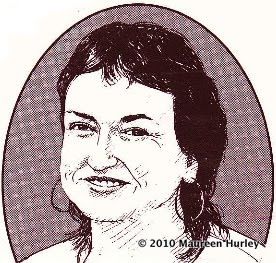David Randall WARE( 1934 - 2016)
WARE,
David Randall It is with great sadness that we announce the passing of
our father, grandfather and great-grandfather, David Randall Ware, on
June 28, 2016 at the age of 82. The cause was due to complications from
colon cancer surgery. Dave, as he liked to be called, was a man of
strength and determination. He was born in Rotan, Texas on March 16,
1934 to Minnie Jewel and Alfonso Ware during the Dust Bowl. He and his
five brothers and sisters spent some of their early years as migrant
farm workers and eventually made their way from Texas to California.
Dave spent these difficult years caring for and nurturing his younger
siblings while his parents worked. It was also during this time that he
began his career as a cabinetmaker at the age of 16 by working for
Jackson Bros. Cabinets. Dave met his wife of 55 years, Marianne Ware
(nee: Horwitz) in Compton, California when he was a young man. He
described this meeting as life changing as Marianne brought humor,
intelligence and creativity to his life - all qualities that Dave
possessed but needed encouragement to express. Marianne passed away in
2010. Dave and Marianne married and gave birth to three devoted
daughters: Laurie Celli of Forestville, CA, Wendy Whitson of Petaluma,
CA and Carrie Ware-Kawamoto of Pleasant Hill, CA. Dave enlisted in the
U.S. Army
on November 13, 1953 and served dutifully as a Sergeant for three
years. He was stationed at Fort Lewis, Washington. Although Dave was a
lifelong democrat and against the draft during the Vietnam War,
his military service was a source of pride for him in later years. He
volunteered at a local V.A. Center, sitting with Veterans and offering a
caring ear and support. Dave moved his family from Southern California
to Guerneville, California in the late 1960's and never looked back. He
loved the redwoods, the clear air and the privacy. It was here that he
set up his own cabinet shop (Dave Ware Cabinets) on his property and
found the peace and independence that he longed for. Dave could fix
anything and enjoyed using his hands to build and create. He was a
woodcarver, master cabinetmaker, played the banjo and auto harp and
loved to sing folk songs. He also completed his A.A. degree at Santa
Rosa Junior College on June 15, 1974 under the G.I. Bill. Dave was a
family man at heart - he cared deeply for his daughters (Laurie, Wendy
and Carrie), his sons-in-law (Michael Celli, John Whitson and Jon
Kawamoto), his grandchildren (Angelo (Michelle), Vincent and Nicholas
Celli, Gabriel and Rosemary Whitson, and Mia and Carly Kawamoto) and his
great-grandchildren (Sofia, Dylan and Isabel Celli). He was a nurturing
and present father who showed up for his children in all of the many
ways he could (baking bread and cooking, helping with school projects,
repairing things, building them furniture, and offering big bear hugs
and "I love you" every time he talked to them). He will be greatly
missed. Dave reconnected with old friends and made deep friendships with
members of his grief support group during the last six years of his
life. Those relationships brought him much joy and pleasure. Please join
us for a celebration of his life on Saturday, July 16th at 10:00 a.m.
at 543 Clement St. in Santa Rosa.
Published Online in the Press Democrat from July 3 to July 4, 2016











